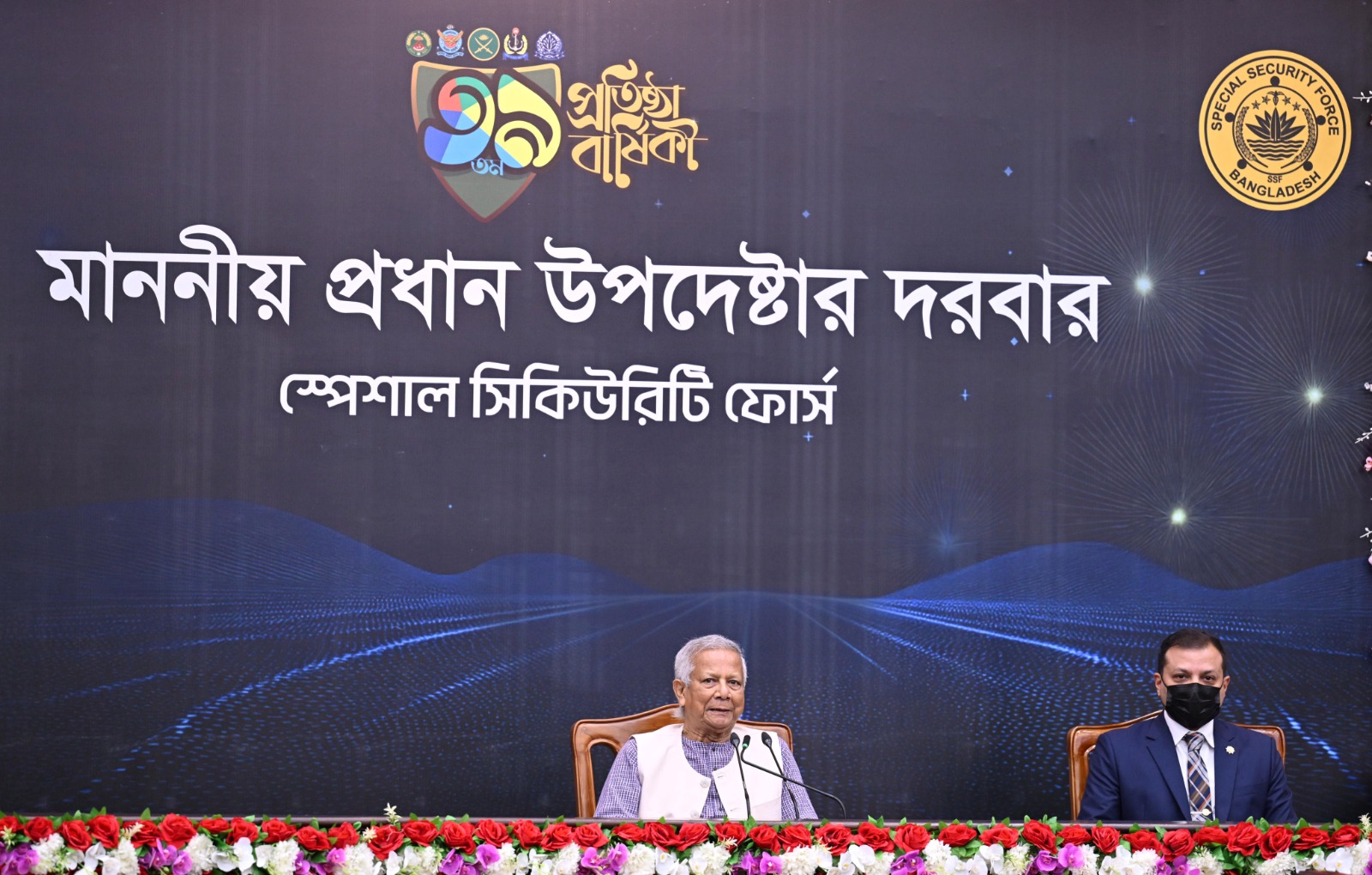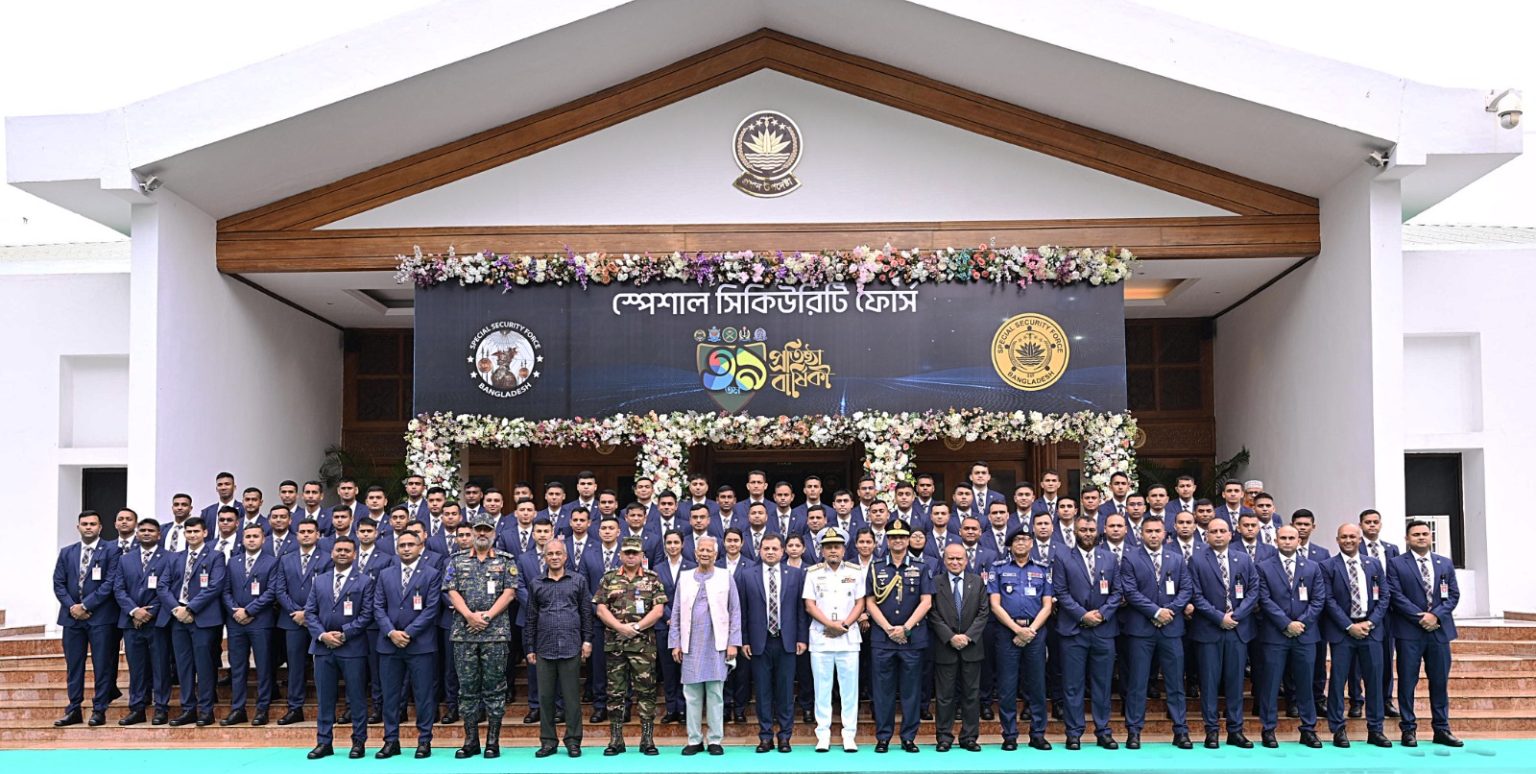Nearly four decades since its inception, the SSF (Special Security Force) remains a symbol of operational precision, institutional loyalty, and quiet strength. The elite force formally celebrated its founding anniversary on Wednesday.
As the nature of global security threats evolves, the SSF continues to adapt– serving as an essential pillar in safeguarding Bangladesh’s constitutional leadership and maintaining the security integrity of the state.
Despite its high-security responsibilities, the SSF has been urged by Chief Adviser Dr. Muhammad Yunus to reduce public inconvenience during VVIP movements and maintain strong coordination with other law enforcement agencies. He emphasised that the SSF should uphold professionalism, discipline, and human values above political considerations.
Recent reforms, such as lifting the suspension of airport operations during VVIP departures, reflect this effort to balance national security with public accessibility.
The SSF is one of the most specialised and strategically significant security institutions in Bangladesh, tasked with ensuring the protection of the nation’s highest leadership.
Originally established on June 15, 1986, as the Presidential Security Force (PSF) under President Hussain Muhammad Ershad, the force was later renamed and restructured as the SSF in 1991 with the return of parliamentary democracy. Its mandate shifted from exclusive presidential protection to a broader national role under democratic governance.

The SSF operates under the Special Security Force Act, which was first enacted in 1991 and updated through amendments in 2021. The law authorises the SSF to provide comprehensive security to the President, Prime Minister, Chief Adviser (during caretaker or interim administrations), visiting foreign dignitaries, and any other individuals declared as VVIPs by the state.
It also grants the force certain preventive powers, including the authority to arrest without a warrant in specific situations, and provides legal immunity to SSF personnel, barring prosecution without government approval.
Comprised of officers and personnel from the Army, Navy, Air Force, Police, and Ansar, the SSF is led by a Director General, typically a two-star general from the Bangladesh Army.
The force is structured into units handling close protection, tactical operations, logistics, intelligence gathering, surveillance, and cybersecurity. It operates from its headquarters in Dhaka and deploys field teams as needed for VVIP movement, public events, state functions, and international visits.
The SSF continues to modernise its operational capacity, focusing on upgraded training, technology, and communications infrastructure. Cybersecurity has also emerged as a key focus, with enhanced systems being deployed at sensitive state installations, including the State Guest House Jamuna and the Chief Adviser’s Office.
Training programmes are regularly conducted both domestically and abroad, often with the support of the Bangladesh Army.


